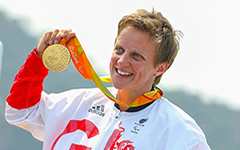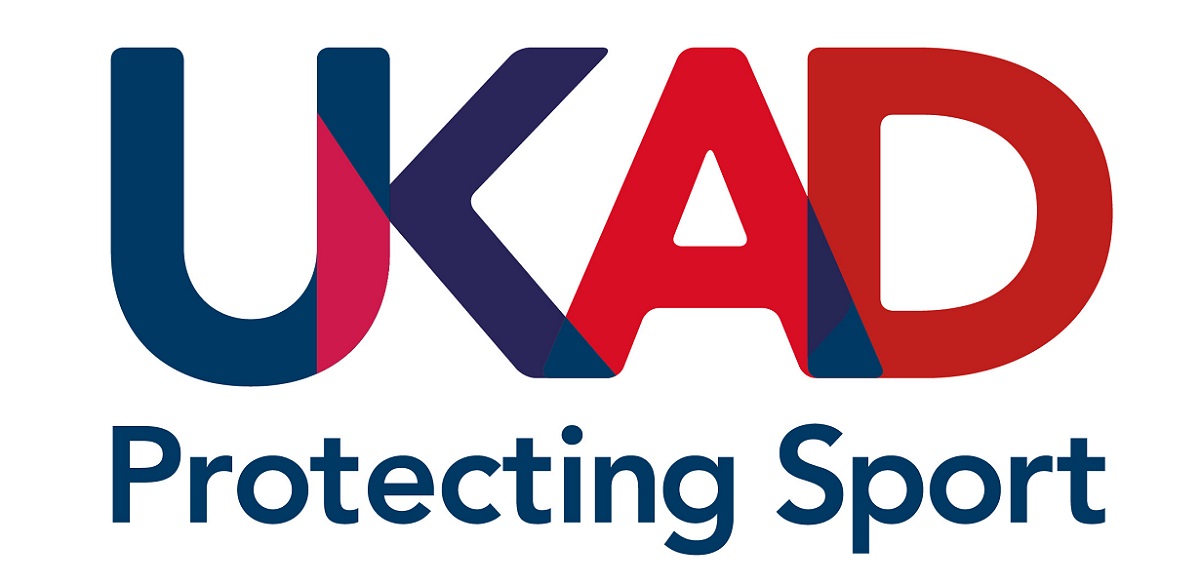BLOG: Importance of anti-doping education and my top tips for young athletes - Laura Deas
The European Youth Winter Olympic Festival began in Sarajevo at the weekend, with 27 athletes representing Team GB across eight different disciplines. For some of these, it may be the first time they have experienced anti-doping testing at a major event.
UKAD Athlete Commission member, Laura Deas, is well versed in this area having been through the same process at the PyeongChang Winter Olympic Games last year. She tells us about the importance of anti-doping education, especially for young and inexperienced athletes, and shares her top tips for anyone new to the testing process.
I’ve been pretty lucky that in my ten years at British Skeleton I’ve had regular access to anti-doping education through UKAD. It’s mostly taken the form of a talk each year to refresh knowledge on testing procedures and any changes that have taken place to rules in the past year, and most importantly what our rights and responsibilities as athletes are.
I think the most important thing in the early part of my career was the education around the risks in taking supplements. As a newer athlete it’s easy not to realise you might be breaking rules inadvertently, because it’s hard to be certain exactly what they contain - there is a risk to taking any supplement, even if you read the label carefully. Education in this area really helped me to assess the risk versus benefit of any supplement, and to always make sure they are batch tested through Informed Sport.
As I’ve gone further through my career I’ve been subject to more testing both in- and out-of-competition, and this is where the education round the actual testing procedure has been invaluable. The first time you get tested it can be a pretty daunting experience as it feels like you have a lot of steps to get right and things to remember. The education I received definitely helped as it meant I was familiar with the equipment that I would be using and the outline of everything that was going to happen.
For the athlete, there is quite a lot of responsibility during a test to make sure all the information on the paperwork is accurate and to provide and handle the samples and seal the bottles correctly. I can imagine for any athlete in that situation who hasn’t received any kind of anti-doping education and is perhaps being tested for the first time in a foreign country during a major competition, it could be quite intimidating.
Before heading out for the PyeongChang Winter Olympics, all Team GB athletes completed anti-doping education specifically tailored towards the experience of a major competition. As it was going to be my first Olympics I was really glad to have had this just before heading out, as it made me feel more confident that I knew what to expect. An Olympic Games is a complete whirlwind of new experiences so I felt really grateful that I was well equipped for the anti-doping part.
Everything about PyeongChang was different to the normal skeleton environment; from the Athlete Village, to sharing an apartment with people you hadn’t met before, to the climate, the language barrier and even the transport system. So it was good that when I was tested straight after our race had finished I was quite familiar with the basic process, even though the circumstances were quite unique!
I had to go straight from the whirlwind of winning a medal alongside Lizzy Yarnold, a moment of crazy celebration with the team and my family, to the flower ceremony, then the media mix zone and a press conference, then up to doping control.
By the time we got there it was past midnight, I was completely on a high and exhausted, as well as being pretty dehydrated. It was surprisingly emotional too as myself and Lizzy were waiting to be tested in a small waiting area alongside other athletes from our race who were disappointed to have finished outside the medals.
At moments like this it’s really invaluable to know where you are with the process so it doesn’t become stressful.
Having now been through an Olympic Games, I think my top tips for anyone going to a major international competition would be:
- First, always carry identification so if you are called for testing there are no delays finding a way of proving who you are (this is easier if you have an accreditation for the event, but it might be useful to get someone like your roommate to be accreditation buddies with you so you always check that you and your buddy have your accreditation before you go anywhere).
- Second, have a list of all your medications/supplements written down somewhere like your phone where you will be able to check it when filling in your form in doping control - it’s surprisingly easy in the heat of the moment to forget what you have taken.
- Finally, I would say that when you are going through a test, it’s important to take your time with the steps involved and don’t be rushed through. Double check everything and if you have a chaperone, get them to check too. You can’t be too careful!



